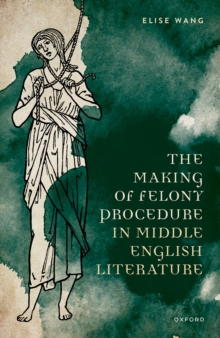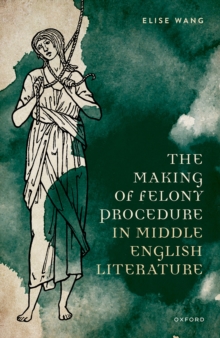
Libel and Lampoon : Satire in the Courts, 1670-1792 Hardback
by Andrew Benjamin (Assistant Professor of English Literature, Department of Literary Studies, Bricker
Part of the Law and Literature series
Hardback
Description
Libel and Lampoon shows how English satire and the law mutually shaped each other during the long eighteenth century.
Following the lapse of prepublication licensing in 1695, the authorities quickly turned to the courts and newly repurposed libel laws in an attempt to regulate the press.
In response, satirists and their booksellers devised a range of evasions.
Writers increasingly capitalized on forms of verbal ambiguity, including irony, allegory, circumlocution, and indirection, while shifty printers and booksellers turned to a host of publication ruses that complicated the mechanics of both detection and prosecution.
In effect, the elegant insults, comical periphrases, and booksellers' tricks that came to typify eighteenth-century satire were a way of writing and publishing born of legal necessity.
Early on, these emergent satiric practices stymied the authorities and the courts.
But they also led to new legislation and innovative courtroom procedures that targeted satire's most routine evasions.
Especially important were a series of rulings that increased the legal liabilities of printers and booksellers and that expanded and refined doctrines for the courtroom interpretation of verbal ambiguity, irony, and allegory.
By the mid-eighteenth century, satirists and their booksellers faced a range of newfound legal pressures.
Rather than disappearing, however, personal and political satire began to migrate to dramatic mimicry and caricature-acoustic and visual forms that relied less on verbal ambiguity and were therefore not subject to either the provisions of preperformance dramatic licensing or the courtroom interpretive procedures that had earlier enabled the prosecution of printed satire.
Information
-
Out of stock
- Format:Hardback
- Pages:342 pages
- Publisher:Oxford University Press
- Publication Date:10/02/2022
- Category:
- ISBN:9780192846150
Information
-
Out of stock
- Format:Hardback
- Pages:342 pages
- Publisher:Oxford University Press
- Publication Date:10/02/2022
- Category:
- ISBN:9780192846150










